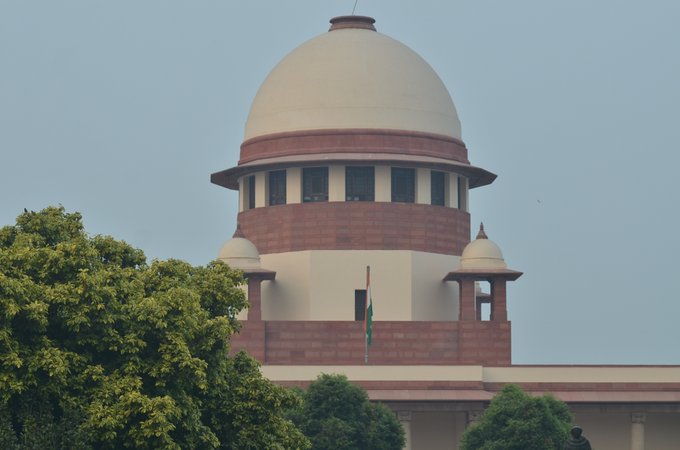LI NETWORK
Supreme court on 28 August in the case of Union of India and Others vs Ashok Kumar Sharma and Others (Criminal Appeal 200 of 2020) a Bench of Justice S.K. Kaul and Justice K.M. Joseph, of Supreme Court delivered an important Judgment on the interplay of Code of Criminal Procedure 1973 and Drugs and Cosmetic Act 1940. The Court settled substantial questions of law with regard to power of Police to to register FIR under Section 154 Cr.P.C or to make an arrest for the offences under Chapter IV of Drugs and Cosmetic Act 1940.
Background:
One Naushad Khan made an online complaint on 22.2.2018. The Commissioner (Food Protection and Drugs) directed enquiry and the Drug Inspector, Mau, U.P. along with two others conducted an inspection at the Sharda Narayan Clinic and Pharmacy and the respondent No.1 was directed to show papers in respect of medicines stored in the shop. The first respondent stated that he did not have any license though he was the owner of the medical store and that he had stored the medicines without proper license. Thereby, he has committed offence under Section 18 and 27 of the Drugs and Cosmetics Act, 1940 (hereinafter referred to as ‘Act’). On the basis of recovery made, an FIR came to be lodged on 22.6.2018, on complaint of Drugs Inspector, purporting to be under Section 18 (a)(i) and Section 27 of the Act.
The Respondent challenged the FIR and sought its quashing. The Allahabad High Court quashed the FIR on the ground that under the Act Section 32 must be scrupulously observed and it is the mechanism for prosecuting offences and there is no scope for registration of a FIR under CrPC.The High Court found that only an Inspector, a Gazetted Officer conferred with authority, a person aggrieved or recognized consumer organization is eligible to make a complaint.
Supreme Court Held-
1. In regard to cognizable offences under Chapter IV of the Act, in view of Section 32 of the Act and also the scheme of the CrPC, the Police Officer cannot prosecute offenders in regard to such offences. Only the persons mentioned in Section 32 are entitled to do the same.
2. There is no bar to the Police Officer, however, to investigate and prosecute the person where he has committed an offence, as stated under Section 32(3) of the Act, i.e., if he has committed any cognizable offence under any other law.
3. Having regard to the scheme of the CrPC and also the mandate of Section 32 of the Act and on a conspectus of powers which are available with the Drugs Inspector under the Act and also his duties, a Police Officer cannot register a FIR under Section 154 of the CrPC, in regard to cognizable offences under Chapter IV of the Act and he cannot investigate such offences under the provisions of the CrPC.
4. Having regard to the provisions of Section 22 (1) (d) of the Act, we hold that an arrest can be made by the Drugs Inspector in regard to cognizable offences falling under Chapter IV of the Act without any warrant and otherwise treating it as a cognizable offence. He is, however, bound by the law as laid down in D.K. Basu (supra) and to follow the provisions of CrPC.
5. It would appear that on the understanding that the Police Officer can register a FIR, there are many cases where FIRs have been registered in regard to cognizable offences falling under Chapter IV of the Act. We find substance in the stand taken by learned Amicus Curiae and direct that they should be made over to the Drugs Inspectors, if not already made over, and it is for the Drugs Inspector to take action on the same in accordance with the law. We must record that we are resorting to our power under Article 142 of the Constitution of India in this regard.
6. Further, we would be inclined to believe that in a number of cases on the understanding of the law relating to the power of arrest as, in fact, evidenced by the facts of the present case, police officers would have made arrests in regard to offences under Chapter IV of the Act. Therefore, in regard to the power of arrest, we make it clear that our decision that Police Officers do not have power to arrest in respect of cognizable offences under Chapter IV of the Act, will operate with effect from the date of this Judgment.
7. We further direct that the Drugs Inspectors, who carry out the arrest, must not only report the arrests, as provided in Section 58 of the CrPC, but also immediately report the arrests to their superior OfficersIn view of our conclusions/directions and subject to the same, we would, on the facts, uphold the impugned Judgment and dismiss the Appeal.

